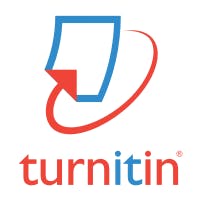You might expect Turnitin’s Vice President of New Technologies, Elijah Mayfield, to have a lifelong penchant for technology. But Mayfield’s true passion is language—particularly writing.
Mayfield spent his grad school years studying natural language processing, computational linguistics, and machine learning. He also spent time consulting for high profile companies like CTB McGraw-Hill and College Board, which wanted to learn more about student writing.
Those combined experiences led him to one key realization: writing is a core skill that many students haven’t mastered—and for a variety of reasons don’t have the opportunity to master—leaving many students at a disadvantage.
Mayfield had found his calling.
In 2013, he left the Ph.D. program at Carnegie Mellon University to create LightSide Labs, which used technology to improve classroom writing. In 2014, Turnitin acquired LightSide with a mandate to help shift Turnitin’s focus from academic integrity tools to those that emphasize student writing. According to Mayfield, the match was practically perfect.
EdSurge chatted with Mayfield—who, by the way, is included in the Forbes 30 under 30 list for 2017—to learn more about his thoughts on the importance of providing students with authentic writing opportunities and why he feels the seemingly simple act of writing can impact all students and help close the achievement gap in education.
EdSurge: Why do you do this? Were you born into a technical family?
Elijah Mayfield: No, my mom was a nurse and my dad was the manager of a tire center, so that's definitely not my background.
I went to a liberal arts college and spent most of my undergrad years not focusing particularly closely on the computer science coursework, but instead focusing on different areas of political science, of English. I studied medieval poetry, particularly the work of Bede and the Norse poets.
So, I've always been interested in language and the aspects of what we can quantify, what we can try and use computer science for—but not focusing just on learn-to-code initiatives or really technical stuff. I would rather spend my time focusing on how that work can benefit people.
Why do you think authentic writing opportunities are so important in education, and what’s lacking in the way education approaches writing today?
Writing is crucial for thinking and for putting together your ideas, for doing a lot of the stuff that education, and particularly public education, is supposed to structure for students. It's supposed to give them the opportunity to develop those skills and I’m not seeing it necessarily in the conversations I'm having.
One thing that I find frustrating is the jump from [developing] the core skills that you need to see in young students—literacy, basic ability to read, to write, to communicate with their peers, to learn from each other in small groups—straight to teaching programming skills, or teaching engineering, teaching on the job skills for 21st century workplaces.
To me this misses a crucial early stage where you need to learn to express yourself, to put together a series of thoughts into a coherent explanation of your ideas to others. That's hard. People don't do that naturally. It takes a lot of practice and it takes a lot of scaffolding.
What kind of problems does this approach to writing create?
When I began talking to education companies, it was clear that the emphasis was on measuring student learning. What that does is deemphasize the role of collaborative learning. It deemphasizes the role of essay writing and communication—the stuff that in fact is probably more valuable for the majority of students.
A lot of the opportunities for the kind of [writing] practice students hardly get are very privileged and tied to tutoring, or tied to extracurricular activities, tied to opportunities that only some students have—and it's largely tied to incomes.
It serves to privilege the people that already understand those norms, sort of intuitively. People that already speak in a mainstream dialect of English, people that speak English as a native language, people that grew up with academics or professionals as parents. Those students get the access to feedback and support, and other students don't.
It's wild that this is accepted as a default. So, making writing judgment-free and effortless to get practice and get opportunities for revision, and get feedback, is the only way to even start to close the achievement gap.
What would you like to see change about the way schools approach writing?
Students should be getting practice early and often.
One thing that I’m working very hard to change is the baseline premise that writing is a high-stakes thing. That writing is always going to be a technical paper that is multiple pages long and has an end of unit, term, or semester setting. And that teachers should be looking for perfect grammar, good formatting, and a lot of technical information. Taking that approach to writing and reviewing doesn't help students get the practice they need.
That mindset discourages students from saying, "I can just practice writing. I can throw some ideas down. I can come up with a new idea. I have opinions and putting together a first draft of those opinions is a good start. Because then, I can go back and work on it from there." These are all things that are foreign in a lot of classrooms.
How does recent news reflect your concerns?
Literacy and collaboration and communication with your peers has certainly not been in shining stellar examples lately. A big factor in the political turmoil in America in the last couple of months has been that there is a widening gap between people who have access to all sorts of opportunities and resources, and others who don't. Building technology products that help those who are already doing well doesn't help that situation, and it encourages a continued polarization and a continued demonizing of others.
How can technology help? How is Turnitin specifically helping close the gap for students?
There are core things that technology isn't doing a good job of supporting today. As we're building products, we need to think about how well students are being prepared in those foundational skills like reading and writing, and not jump all the way to building products that are only going to help students who already have those skills. What that ends up doing is widening the achievement gap. That terrifies me and it's something that I'd like Turnitin to play a role in changing.
I have been really proud of the way we started shifting the conversation at Turnitin around to being centered on student learning and feedback for student writing and empowerment. With the product that my team built, Revision Assistant, students are writing seven, ten, twelve drafts before submitting anything to their teachers. They've gone back and reread their essays, they've thought about their work. And students have written twice as much by the time that the teacher gets the paper compared to just being asked to write a first draft with no interim support.



